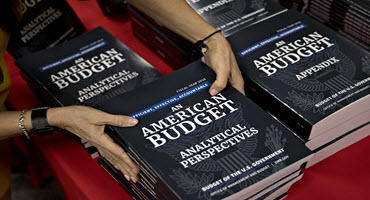President Trump’s proposed budget cuts funding to the crop insurance program
By Diego Flammini
News Reporter
Farms.com
American farmers are letting their elected representatives know how they feel about President Trump’s budget and its potential impact on the federal crop insurance program.
The President is considering cutting crop insurance funding by $22.4 billion, or about 33 percent, between 2019 and 2028, according to the budget document.
In an industry dictated by weather and shaped by other uncontrollable factors, crop insurance is a very important tool, according to producers.
“Without crop insurance, there’d be no way I’d put my family at risk with the devastation that can happen with a crop failure,” Mike Shane, a farmer and ag lender from Peoria, Ill., said during a Peoria County Farm Bureau meeting with U.S. Senator Tammy Duckworth yesterday, according to FarmWeekNow.
Crop insurance also helps farmers access the capital they need to continue producing crops, Shane said.
“There’s no way farmers could borrow money from (lenders) without any backing. With that crop insurance backing, if something happens, they’ll be able to pay the bank back.”

Net farm income is projected to fall by 6.7 percent to $59.5 billion in 2018, according to the USDA. And farmers look to crop insurance to help offset the costs of producing a crop.
“The dollars at risk of putting out one acre of corn is three to four times what it was 10 years ago,” Randy Kron, president of the Indiana Farm Bureau, told Eyewitness News on Friday while U.S. Senator Todd Young visited his farm.
Crop insurance also helps the next generation of farmers start their careers, especially as today’s farmers age and think about retirement.
“Crop insurance is going to be big, especially as the average age of the farmer keeps going up, and we have a lot of younger folks to bring back in (to farming),” Carson Klosterman, president of the North Dakota Corn Growers Association, told the Wahpeton Daily News yesterday.